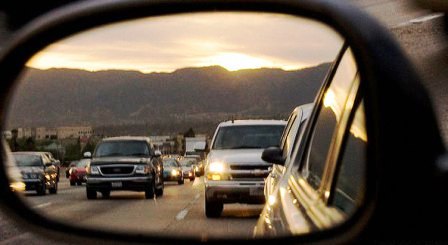We know many of the questions potential clients ask and we want to clear misconceptions and better explain the job. We do video surveillance on people from all walks of life and in all places.
Is it legal?
In most cases, yes. The phrase that comes up is: reasonable expectation of privacy. A person in a public place, say a parking lot or on the street, has no expectation of privacy. However, someone in their own house or apartment, living room, back yard or bathroom, does have an expectation of privacy.
We will not take cases where a potential client has a restraining order or court order against them.
We do not record audio. Audio recording is usually illegal unless both parties are aware it’s being done and agree to it.
What information do you need to get started?
We need detailed vehicle information, subject photo or description and good information about where to start the surveillance. After a retainer agreement is signed and the retainer fee paid, we are ready to start your case. Vehicle information is crucial, especially a license plate and whether the vehicle has any noticeable decals or markings on it.
A photo of the subject, perhaps one business and one casual, helps us to confirm that we have the right person. Like a vehicle, people have certain “identifiers.” What makes him or her unique or how can we pick them out of a crowd? Accent, preferred jewelry, walking style, physical characteristics and clothing and outer-garments are all good to know. Are they apt to use public transportation, a motorcycle or be on foot?
Surveillance may be more difficult in certain areas. Private, gated communities, private company parking lots, large buildings with multiple exits and entrances, etc. each bring complications to a surveillance.
Sometimes, our operatives will scout out an area in advance to assess the likelihood of a successful surveillance.
If known, we also like to know the places a subject is likely to frequent. Do they have friends or relatives they might visit or do they go to a gym or to certain bars and restaurants? This information helps us to prepare.
How long does it take?
Depends. We are dealing with human behavior and therefore each case is different. We have a set number of hours in the retainer agreement and do not exceed the amount without client approval.
Surveillance can be a bit like fishing or hunting. You might not catch the big fish on your first trip to the lake but if you keep going and know the spots, you increase your chances of success. We have had several infidelity cases where we caught the subject on the first day but many others where it took three, four or five outings to obtain the video proof.
There is a learning curve in each case. We like to get familiar with our subject. The worst thing to do on a case is be overly aggressive in the beginning and risk being detected. We try to avoid just sitting near someone’s residence with no signs of activity. Usually, if there is no movement within a couple hours we will stop and try another time.
How do you it?
In general, the challenge is to get on the subject outside of his or her known areas where detection is less likely. Sitting in a car right outside the person’s house is about the worst thing we can do. The mission is to blend and to be discrete. If we can get the subject out to a main road without detection we are in good shape.
Sometimes, we alert local police to let them know we are in a certain area for a lawful investigation. We do not however disclose to police who we have under surveillance. We do this in case a neighbor sees us and calls police. We are contacting them in advance so they do not show up and alert the neighborhood to our presence.
Do you ever lose people?
Unfortunately, yes. Any investigator who tells you they never lose people is a liar. With good habits and discipline, the risk of losing a subject under surveillance is greatly limited. Vehicle surveillance presents challenges, especially with traffic lights. We never want to be a risk to the public or ourselves in running a light or in our driving. Sometimes, safety decisions trump the immediate job of a surveillance.
When we do lose a subject, which is rare, we set back up at a place where we will see the subject again and continue the investigation.
Do you ever get detected?
It has happened a few times in the last 20 years but is rare. “Being made” might occur when investigators are not rotated or one investigator has maybe stayed on the subject for too long. It has occurred when the subject is watchful and the client opted not to use a second investigator.
Can you get video at night or inside places?
Night or low light creates some challenges. Cameras generally take good video so long as a little bit of light is available. We carry hand-held covert cameras to take video in places such as bars and restaurants.
How do you get good results?
Planning, patience and commitment. When a client commits to us we commit to them. Any good investigation is a product of time, money and diligence.



